 W
WMost of the areas which today are within modern Greece's borders were at some point in the past a part of the Ottoman Empire. This period of Ottoman rule in Greece, lasting from the mid-15th century until the successful Greek War of Independence that broke out in 1821 and the proclamation of the First Hellenic Republic in 1822, is known in Greek as Tourkokratia. Some regions, however, like the Ionian islands, various temporary Venetian possessions of the Stato da Mar, or Mani peninsula in Peloponnese did not become part of the Ottoman administration, although the latter was under Ottoman suzerainty.
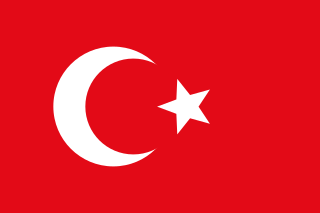 W
WThe Eyalet of Rumeli or Rumelia, also known as the Beylerbeylik of Rumeli, was a first-level province of the Ottoman Empire encompassing most of the Balkans ("Rumelia"). For most of its history it was the largest and most important province of the Empire, containing key cities such as Edirne, Yanina (Ioannina), Sofia, Manastır/Monastir (Bitola), Üsküp (Skopje), and the major seaport of Selanik/Salonica (Thessaloniki).
 W
WThe Eyalet of Adrianople or Edirne or Çirmen was constituted from parts of the eyalets of Silistra and Rumelia in 1826.
 W
WAgia Lavra is a monastery near Kalavryta, Achaea, Greece. It was built in 961 AD, on Chelmos Mountain, at an altitude of 961 meters, and can be described as the symbolic birthplace of modern Greece. It stands as one of the oldest monasteries in the Peloponnese.
 W
WAli Pasha, variously referred to as of Tepelena or of Janina/Yannina/Ioannina, or the Lion of Yannina, was an Ottoman Albanian ruler who served as pasha of a large part of western Rumelia, the Ottoman Empire's European territories, which was referred to as the Pashalik of Yanina. His court was in Ioannina, and the territory he governed incorporated most of Epirus and the western parts of Thessaly and Greek Macedonia. Ali had three sons: Muhtar Pasha, who served in the 1809 war against the Russians, Veli Pasha, who became Pasha of the Morea Eyalet and Salih Pasha, governor of Vlore.
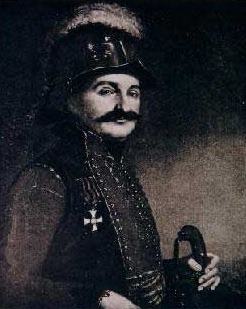 W
WThe Battle of Andros was fought on 17–18 May 1790, during the Russo-Turkish War of 1787–1792, between Cape Kafireas and the island of Andros, between the ships of Lambros Katsonis, a Greek privateer in Imperial Russian service, and an Ottoman–Algerian fleet of 30–32 vessels. The battle was a major victory for the Ottomans, as Katsonis lost five ships and his flotilla ceased to exist as an operational unit. On the other hand, the Ottomans suffered heavy casualties as well, and Katsonis was able to escape and reconstitute his forces, remaining active until the end of the war.
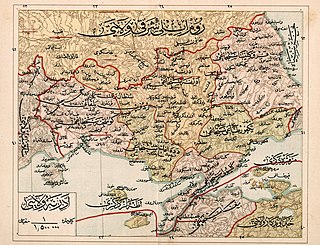 W
WThe Sanjak of Dedeağaç, originally in 1878–1884 the Sanjak of Dimetoka, was a second-level province (sanjak) of the Ottoman Empire in Thrace, forming part of the Adrianople Vilayet. Its capital was Dedeağaç, modern Alexandroupoli in Greece.
 W
WThe Sanjak of Drama was a second-level Ottoman province encompassing the region around the town of Drama in eastern Macedonia.
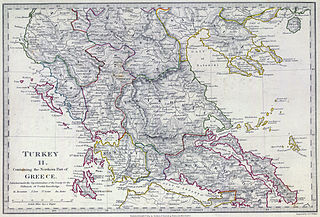 W
WThe Sanjak of Eğriboz or Ağriboz was an Ottoman province (sanjak) encompassing eastern Continental Greece. Its name derives from its capital, Eğriboz/Ağriboz, the Turkish form of Euripos, another name of Chalkis. In contemporary English sources it is usually known as Negropont after the Italian name for Chalkis and the island of Euboea, Negroponte.
 W
WThe Evergetinos is a vast collection of materials from a number of other collections of sayings of monastics and others, ranging from the well-known works of St. John Cassian and Palladius, to the anonymously produced Apophthegmata collections, but including materials also from hagiographies, menologia, and other, unspecified and now-lost sources. The collection was compiled in the eighteenth century by Hieromonk Paul and Macarios of Corinth along with Nicodemos the Hagiorite, was responsible for putting together a manuscript for publication based upon a number of manuscripts scattered among the libraries of the Holy Mountain.
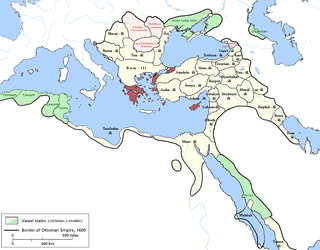 W
WThe Eyalet of the Archipelago was a first-level province (eyalet) of the Ottoman Empire. From its inception until the Tanzimat reforms of the mid-19th century, it was under the personal control of the Kapudan Pasha, the commander-in-chief of the Ottoman Navy.
 W
WFiliki Eteria or Society of Friends was a secret organization founded in 1814 in Odessa, whose purpose was to overthrow the Ottoman rule of Greece and establish an independent Greek state. Society members were mainly young Phanariot Greeks from Constantinople and the Russian Empire, local political and military leaders from the Greek mainland and islands, as well as several Orthodox Christian leaders from other nations that were under Hellenic influence, such as Karađorđe from Serbia Tudor Vladimirescu from Romania, and Arvanite military commanders. One of its leaders was the prominent Phanariote Prince Alexander Ypsilantis. The Society initiated the Greek War of Independence in the spring of 1821.
 W
WFolk Songs of the Macedonian Bulgarians is an ethnographic collection of folk songs collected by Stefan Verkovic, considered to be his most valuable contribution to the field of Bulgarian folklore. It was published in Serbian in 1860, in Belgrade.
 W
WThe Sanjak of Gelibolu or Gallipoli was a second-level Ottoman province encompassing the Gallipoli Peninsula and a portion of southern Thrace. Gelibolu was the first Ottoman province in Europe, and for over a century the main base of the Ottoman Navy. Thereafter, and until the 18th century, it served as the seat of the Kapudan Pasha and capital of the Eyalet of the Archipelago.
 W
WLiverios Gerakaris, more commonly known by the hypocoristic Limberakis, was a Maniot pirate who later became Bey of Mani.
 W
WGermanos III of Old Patras, born Georgios Gotzias, was an Orthodox Metropolitan of Patras. He played an important role in the Greek Revolution of 1821, having diplomatic and political activity.
 W
WThe Sanjak of Gümülcine was a second-level province (sanjak) of the Ottoman Empire in Thrace, forming part of the Adrianople Vilayet. Its capital was Gümülcine, modern Komotini in Greece.
 W
WThe Sanjak of Inebahti or Aynabahti was a second-level Ottoman province encompassing the central parts of Continental Greece. Its name derives from its capital, Inebahti/Aynabahti, the Turkish name for Naupaktos, better known in English with its Italian name, Lepanto.
 W
WThe Vilayet of Janina, Yanya or Ioannina was a first-level administrative division (vilayet) of the Ottoman Empire, established in 1867. In the late 19th century, it reportedly had an area of 18,320 square kilometres (7,070 sq mi). It was created by merging the Pashalik of Yanina and the Pashalik of Berat with the sanjaks of Janina, Berat, Ergiri, Preveze, Tırhala and Kesriye. Kesriye was later demoted to kaza and bounded to Monastir Vilayet and Tırhala was given to Greece in 1881.
 W
WKarli-Eli, also Karli-Ili or Karlo-Ili, was the Ottoman name for the region of Aetolia-Acarnania in western Greece, which formed a distinct administrative unit from the late 15th century until the Greek War of Independence.
 W
WThe Kingdom of the Morea or Realm of the Morea was the official name the Republic of Venice gave to the Peloponnese peninsula in southern Greece when it was conquered from the Ottoman Empire during the Morean War in 1684–99. The Venetians tried, with considerable success, to repopulate the country and reinvigorate its agriculture and economy, but were unable to gain the allegiance of the bulk of the population, nor to secure their new possession militarily. As a result, it was lost again to the Ottomans in a brief campaign in June–September 1715.
 W
WThe kodjabashis were local Christian notables in parts of the Ottoman Balkans, most often referring to Ottoman Greece and especially the Peloponnese. They were also known in Greek as proestoi or prokritoi or demogerontes. In some places they were elected, but, especially in the Peloponnese, they soon became a hereditary oligarchy, who exercised considerable influence and held posts in the Ottoman administration.
 W
WIn Greek history, a krifó scholió was a supposed underground school for teaching the Greek language and Christian doctrine, provided by the Greek Orthodox Church under Ottoman rule in Greece between the 15th and 19th centuries. Many historians agree that there is no evidence that such schools ever existed. Other historians accept that secret schools only existed during periods of intense Islamization, while other see it as a possible "myth" and others believe that the Krifo Scholio was a reality. Professor of philology Alkes Angelou (1917–2001), in one of his last publications on the subject, finds that the krifó scholió persisted as a national myth. Other Greek scholars criticize Angelou's work as politically motivated and biased.
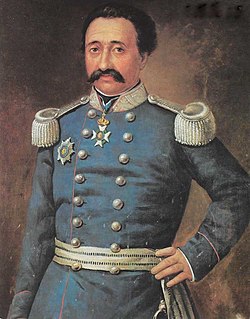 W
WAndreas S. Londos was a Greek military leader and politician. Born in Vostitsa in 1786, he was initiated into the Filiki Eteria in 1818, and was one of the first military leaders to raise the banner of revolt in the Peloponnese during the Greek War of Independence.
 W
WThe Orlov revolt was a Greek uprising in the Peloponnese and later also in Crete that broke out in February 1770, following the arrival of Russian Admiral Alexey Orlov, commander of the Imperial Russian Navy during the Russo-Turkish War (1768–1774), to the Mani Peninsula. The revolt, a major precursor to the Greek War of Independence, was part of Catherine the Great's so-called "Greek Plan" and was eventually suppressed by the Ottomans.
 W
WThe partition of the Ottoman Empire was a geopolitical event that occurred after World War I and the occupation of Constantinople by British, French and Italian troops in November 1918. The partitioning was planned in several agreements made by the Allied Powers early in the course of World War I, notably the Sykes-Picot Agreement, after the Ottoman Empire had joined the Ottoman–German Alliance. The huge conglomeration of territories and peoples that formerly comprised the Ottoman Empire was divided into several new states. The Ottoman Empire had been the leading Islamic state in geopolitical, cultural and ideological terms. The partitioning of the Ottoman Empire after the war led to the domination of the Middle East by Western powers such as Britain and France, and saw the creation of the modern Arab world and the Republic of Turkey. Resistance to the influence of these powers came from the Turkish National Movement but did not become widespread in the other post-Ottoman states until the period of rapid decolonisation after World War II.
 W
WRûm, also transliterated as Roum, is a derivative of the term Ῥωμαῖοι (Rhomaioi). The latter was an endonym of the (pre-Islamic) inhabitants of Turkey, the Middle East, and the Balkans, dating to when those regions were parts of the Byzantine Empire.
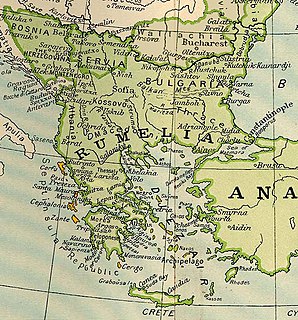 W
WRumelia, etymologically "Land of the Romans", was the name of a historical region in Southeastern Europe that was administered by the Ottoman Empire, corresponding to the Balkans. In its wider sense, it was used to refer to all Ottoman possessions and vassals that would later be geopolitically classified as "the Balkans".
 W
WThe Russo-Turkish War (1806–1812) between the Russian Empire and the Ottoman Empire was one of the Russo-Turkish Wars. Russia prevailed, but both sides wanted peace as they feared Napoleon's moves to the east.
 W
WThe Principality of Samos was an autonomous tributary state of the Ottoman Empire from 1834 to 1912. The island of Samos participated in the Greek War of Independence and had successfully resisted several Turkish and Egyptian attempts to occupy it, but it was not included with the boundaries of the newly independent Kingdom of Greece after 1832. Instead, in 1834 the island was granted self-government as a semi-independent state.
 W
WThe Sanjak of Siroz or Serres was a second-level Ottoman province encompassing the region around the town of Serres in central Macedonia.
 W
WRoxandra or Roxana or Roksandra Skarlatovna Edling-Sturdza was a philanthropist and a writer. Her chief achievement was the foundation of schools and orphanages for the young and needy refugees in Odessa during the years of wars and revolutions in the Balkans. She was a grandchild of the Grand Dragoman or Prince of Moldavia Constantine Mourousis; that and her own actions, vision, will and determination made her a prolific advocate of young refugee needs all over Europe.
 W
WThis is a timeline of the presence of Orthodoxy in Greece. The history of Greece traditionally encompasses the study of the Greek people, the areas they ruled historically, as well as the territory now composing the modern state of Greece.
 W
WIoannis Varvakis, also known as Ivan Andreevich Varvatsi, was a Greek distinguished member of the Russian and Greek communities, national hero, member of the Filiki Eteria and benefactor of the places where he lived.